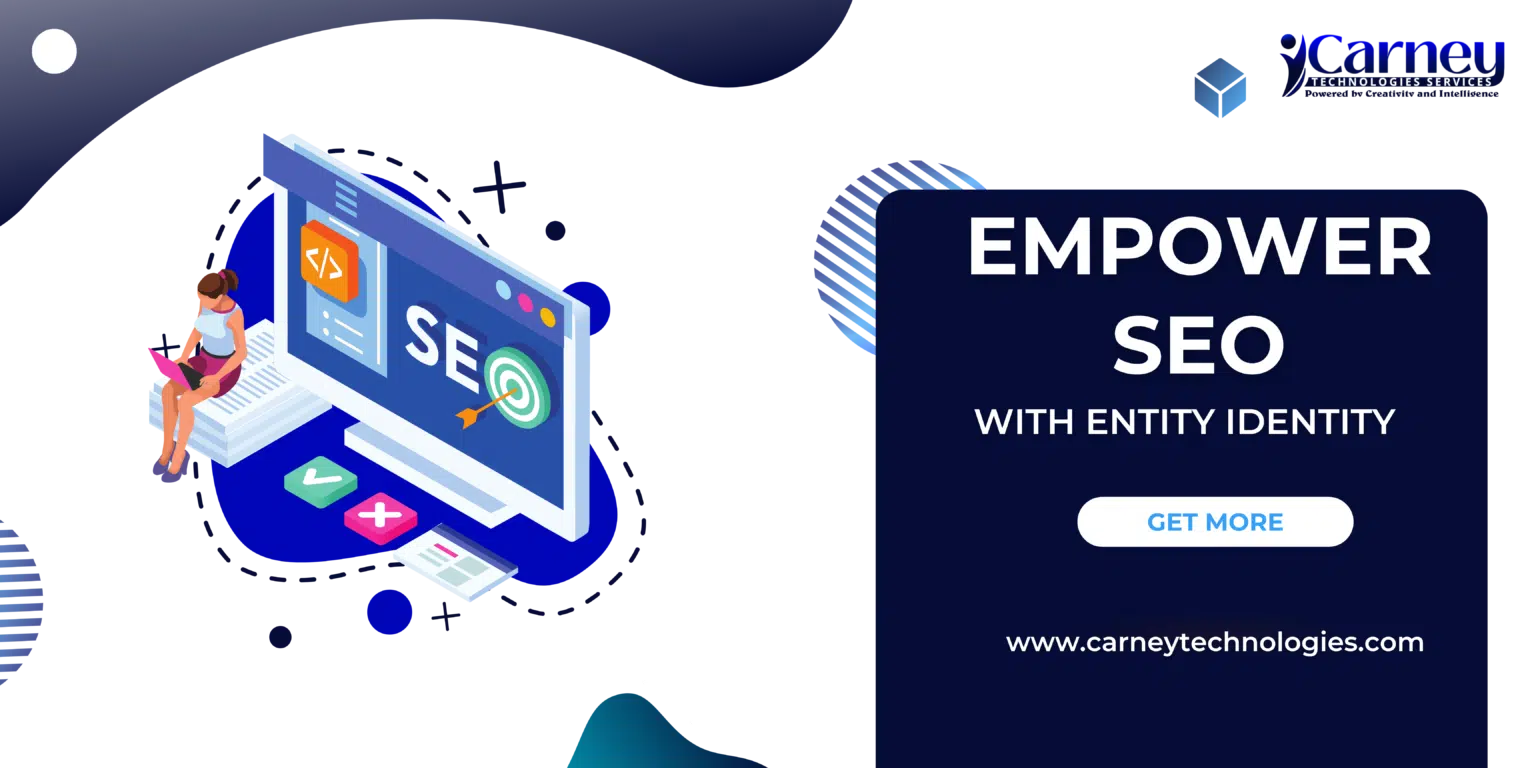Why are entities such an important factor in ranking in Google today? To understand what entities mean to SEO and how they would help in a more specific search, let’s get a bit knowledgeable on SEO entities.
A more focus-based search result, entity SEO is the surest way to fetch quantity and quality-based organic search results.
What is entity based SEO?
When writing SEO content, keywords have a significant role to play. They help in pivoting a search result while inferring the contextual meaning of the word through a well-defined content strategy that brings a better return on investment.
However, as you delve deeper, you understand the importance of entity based advanced SEO search.
How will entity based SEO make a difference supported with keyword play?
The foundation of search engines is keyword marketing and closing the search to specifics makes entity SEO so powerful.
- What is the goal of any business?
- Businesses want to be discovered through their content.
- Content generates long-term business value and building content viability is the essence of content marketing.
However, content discovery is a strategy designed for user experience. With entity search, search engines understand the intent of the searcher and align the search specifically. So how is the entity search strategy devised?
Google is forever endeavoring to achieve better keyword results for users. Entity keywords are a way to cut across the clutter and upgrade from ambiguity to specifics. Search engines are continuously supporting and personalizing search results by maximizing predictability through vital formats. Google in one word defines an entity as a factor that is unique, well defined, and distinguishable.
The closer you are to defining your product through specific entities of location, business purpose and user experience the faster will your business entity be filtered on the search engine results.
The three most significant ranking factors are content, links, and RankBrain.
Content
The strongest way you can establish an entity connection is through content. Content is the best way by which you design the search engine to relate to the searcher’s intent.
For example, if someone is looking for:
‘Used automobile parts on sale’
Now if your content is written on engines or transmission, it will reflect this generic keyword and show a generic search result. However, when the relationship is closely bonded with an entity like automobile used engines for sale is added, the results will be more focused on the entity which is the ‘engine’ and ‘used’.
However, when your keyword carries a location with it, for example, ‘automobile used engines for sale in USA’. This entity will direct you to the specific area and help searchers find you easily in the specific country. You can streamline your entity with a more specified location like engines for sale in Louisiana, USA. This helps the search engine to build a direct connection, an immediate relationship, and bring your product out of the noise. So this is how fundamentally entity SEO works in content.
Links
Giving a direction to search engine crawling and building a relationship between pages on the web that contain the entities is established through the link. Let us look at it like this; the entity in a given content ‘engines for sale in Louisiana’ is connected to the topic on the page, ‘Find Best Used Engines for Sale in Louisiana’. This topic is connected through a link that the search engine crawls. Therefore a chain of relationships leads to the discovery of the entity on a specific page.
RankBrain
This is a component of Google’s core algorithm that works on machine learning and interprets the most relevant data inputs it has received and relates it to the search engine queries. These cover search location, personalization, and the search words used to determine the searcher’s true intent. When the searcher writes ‘used automobile parts on sale’, Google tries to understand the search intent.
What is the searcher exactly looking for? Does the searcher want to buy any used automobile parts or specific used automobile parts? The word ‘used’ is emphatically mentioned giving Google a direction that the user is not looking for new parts but after-sales parts.
Google displays a list of places that might be selling used automobile parts. Now imagine how Google responds when searching this entity SEO query. ‘Used automobile engine parts.’ Here the search is more focused on the entity that enables Google to reach the entity product with ease.
Rankbrain works under these complicated parameters and through a series of calculations based on pattern and machine learning algorithm determines to answer the exact fit for a search. More specific search like ‘engines for sale in Louisiana, USA’ will signal the user location and help the search engine to interpret the intent of the search better and satisfies the searcher with the exact entity they were searching for.
Advanced Entity search
SEO is greatly relying on schema markup to build a stronger connection. Creating specific identifiers in the schema will create entities. The schema markup can be linked to the knowledge graph which links information and data across the Web contextually as search engines start crawling for the relevant results. For instance ‘used automobile parts, is the central entity of the knowledge graph. Other entities like ‘used engines for sale’, used engines for sale, USA’, ‘used engines for sale, Louisiana, USA’ is connected through a relationship defining type, product specifics, country, state. This linkage of the content with the context of the website leads search engines to understand the relationship with the contextual information to be reflected on the search results.
Linking context entity to an authoritative source
Therefore, the learning, entity search is specifically based on the contextual inference made by the search engine. Connecting all the information, irrespective of geographies and language, entities drive more relevant and exact results on queries. The most authoritative way of contextualizing information is linking the content of your website with a knowledge graph authority that has an existing (Expertise, Authoritativeness, and Trustworthiness) E-A-T ratio. For instance, Wikipedia and LinkedIn are an authoritative source that talks about your brand and company. When the results are reflected on the search engine it builds a brand reputation that impresses searchers to value your brand quality.
Streamlining Semantic Search
Looking beyond keywords and backlinks, Google endeavors to sense the search intent and context through which it performs a semantic search. When you type ‘used engines’ you will find Google offering various options that reflect results assuming your intent. Google allows you to choose from the intent options. Understanding the natural language with human capabilities and derivations Google generates the most accurate results. Discerning between entities and interpreting them is based on the language used by the searcher. The more well-defined your entity, the easier it is for the search engine to match your entity with the search result.
What are the Metrics of entity ranking on the search engine?
When it comes to Google you can broadly classify entity ranking.
Relationship
As discussed forming a relationship and associating it is how an entity is identified. ‘Ford Mustang’, the two entities are a frequent reference easily associated. A more relatable example Novak Djokovic, the world No. 1 tennis player who was associated with the Australian open recently for his vaccine reluctance reflects a pluralized identity.
Notability
The value of the entity notability is determined by links, knowledge graph, review, reference, and mentions in various interlinked sources. With entity marking, the category of competition drops increasing. The exactness of the entity closes in the search determiners making the entity significantly different from its competitors. Influential entities help to create a distinction and single out your business when searchers are looking for the influential entity that together associates your business with the entity as the entity is your business influencer.
Rewards and recognitions
These are strong entity associations. Prizes, certifications, and rewards of international or national fame are specific entities that immediately allow the search engine to relate. This makes the entity value-added. Awards like the Nobel Prize, Oscars, Grammy Award, Pulitzer Prize, etc. attribute entities of value with specific searches that will associate your brand with entities who are a recipient of a well-known award or recognition.
Outperforming keywords with entity based SEO can help your company to be found prominently in the search engine. Increasing visibility to attract new customers not just through words and phrases but with intent and context will make a huge difference to search engine discovery. Does that mean that you will need a complete overhauling of your website defining search and context-based entity SEO? Of course not, but website audits are the best way to determine where you can plant entity based SEO to fill the gaps. An evaluation of competitor websites with special attention on links, content, and Rankbrain will help you lean a lot on where you need to work or where you can outrank.






